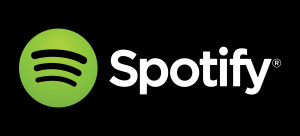
Despite marketing itself as a law-abiding and musician-friendly service since its launch in 2006, Spotify’s latest lawsuit settlement has helped unmask its less than aboveboard practices. Several months ago, the National Music Publisher’s Association (NMPA) sued the popular music streaming service for failure to properly obtain mechanical licenses for a significant portion of its library of music. Despite appearing to be a virtually slam dunk case in the music publishers favor, after a protracted negotiating period, both sides agreed to a settlement that, once again, leaves Spotify virtually unscathed after being caught with its hand in the cookie jar.
It is estimated that upwards of twenty-five percent of activity on all music streaming services is unlicensed. In response, several musicians have filed class action lawsuits for copyright infringement, seeking upwards of $200 million in damages. In response, streaming services argue that, because there has never been a central, certified database covering all music rights, they lacked the ability to retrieve the data to adequately discern which publishers actually had proper claims or how to even locate all of the parties. Although they assert that they are in the process of developing their own software to resolve this issue, in the interim period streaming services are trying to settle as many of these cases as possible before the classes even have the opportunity, or momentum, to certify.
Spotify is conspicuously private about its payment practices and the exact terms of the current deal it reached with the NMPA adhere to that tradition. Although the ballpark figure of the settlement is widely speculated to be anywhere between $16 million and $25 million plus an additional $5 million in punitive damages according to the New York Times, the exact terms have yet, and likely never will, be fully made public. In exchange for the fine and keeping the settlement terms confidential, the NMPA agreed to refrain from filing future copyright infringement claims against Spotify. Nevertheless, despite outwardly appearing to be a win-win for both sides, the settlement does a significant disservice to music publishers and artists. The problem with the terms of the deal is that it rewards streaming services for unlawful behavior—$16-25 million is a steal compared to the amount of money Spotify would have been forced to pay to litigate the numerous other copyright infringement suits they were facing. Moreover, in exchange for a one-time fee, Spotify evaded the colossal and inevitable public relations nightmare it would have faced had the cases gone to trial. The effect of these agreements also spills over and influences the practices of all other music streaming services. Tidal and Rhapsody are in similar predicaments and they will likely try to follow Spotify’s lead to reach a similar arrangement where they pay a lump sum in exchange for dropping other class action suits. Without a court ruling to the contrary, these types of settlements set a potentially treacherous precedent where musicians and music publishing companies are cheated out of their legal right to millions of dollars.
Loren Shokes is an Entertainment and Sports Highlight Contributor for the Harvard Journal of Sports and Entertainment Law and a current second year student at Harvard Law School (Class of 2017).
